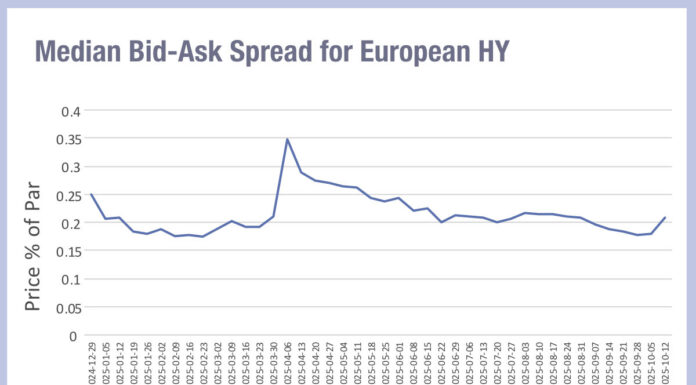We asked senior buy-side trading heads about electronic market maker, Citadel Securities, entry into the corporate bond market as a direct market maker, a story broken by The DESK.
Since June 2023, the firm has begun making markets in US investment credit directly streaming to clients using MarketAxess’s platform and Tradeweb – as of the end of this week – using both disclosed and all-to-all trading protocols. It is also engaging with other relevant platforms.
Buy-side traders, a large community which will be consuming Citadel’s liquidity, have a mix of positive and neutral views on the importance of this development, but with some key points as to how it could succeed.
In a statement, Orlando Gemes, founding partner and chief Investment Officer at Fairwater Capital, wrote, “Credit trading is finally set to be revolutionised!”
In response, Antoine Marmoiton, trader and analyst at Alken Asset Management wrote, “I actually don’t think credit trading will be revolutionised. Lots of flow trading firms are already there. It’s actually very simple. No one wants to hold much inventory that is not hedged very well [since inventory became too expensive to hold post 2009 in banks] so it doesn’t matter if you think you have amazing algos (they already exist), you can’t make something out of thin air.”
Speaking on background, many trading desks at buy-side firms that are already trading with Citadel, particularly in the US rates space, say they are happy to see Citadel enter the credit market, particularly in an area that has liquidity challenges and faces disruption via shifting transparency levels and regulation.
They say the firm’s strengths are in its ability to leverage technology, data and experience in the rates space. Having a range of market making models will potentially allow it to grease the wheels of liquidity in corporate bonds where traditional players in the marketplace have taken a step back. It also makes it more diverse than pure-play exchange traded fund (ETF) market makers.
Several firms said they wanted to see how the service worked, only one firm said it would not connect directly as it could not see the case for the engagement.
Citadel is already a fixed income ETF market maker, which it operates with engagement in the creation / redemption process converting ETFs to underlying bonds or vice versa. The new service it is launching is a corporate bond market making business, where it provides markets in corporate bonds directly to customers.
Jordan Cila, head of fixed income distribution, says, “Credit was a natural expansion for us as it lives at the nexus of our fixed income and ETF franchises. We enter markets when we know we can provide value to our clients through a high-quality offering, and compete aggressively right out of the gate.”
Citadel reports that there is a high amount of overlap in the flows it sees and connects for the two above businesses, and that they are complimentary in many ways.
One buy-side head of trading, noting they are a welcome addition to the market making space, said, “Their prowess in the ETF space and what they’ve done in the rates arena line up very well for IG credit and I’d expect HY to be the next point of entry.”
While Citadel has become a top-tier rates shop for much of the buy side, traders report, they note its level of commitment to credit will be closely watched; credit is less fungible than rate and primary is a key driver of secondary trade allocation for the buy side.
“Given the liquidity profile and balance sheet intensive nature of market making, It will be a very different lift for them,” said one trader.
A counterpoint, made by Fairwater Capital’s Gemes, is, “Banks will continue to have a role in debt capital markets, structuring and securitisation, however, an ever-increasing percentage of flow trading will move to superior platforms.”
Marmoiton argues that structural issues, including the need for equity-like transparency for which there is no enthusiasm, an inability to short sell, and a lack of standardised instruments are all preventing a revolution in the space.
Bob Cariste, head of fixed income ETF trading, says, “The credit market is less electronified than some of the other markets we’re active in, so there is a lot of room for us to add meaningful liquidity. The presence of an additional liquidity provider operating at scale is a net positive for the broader market.”
©Markets Media Europe 2023
©Markets Media Europe 2025














